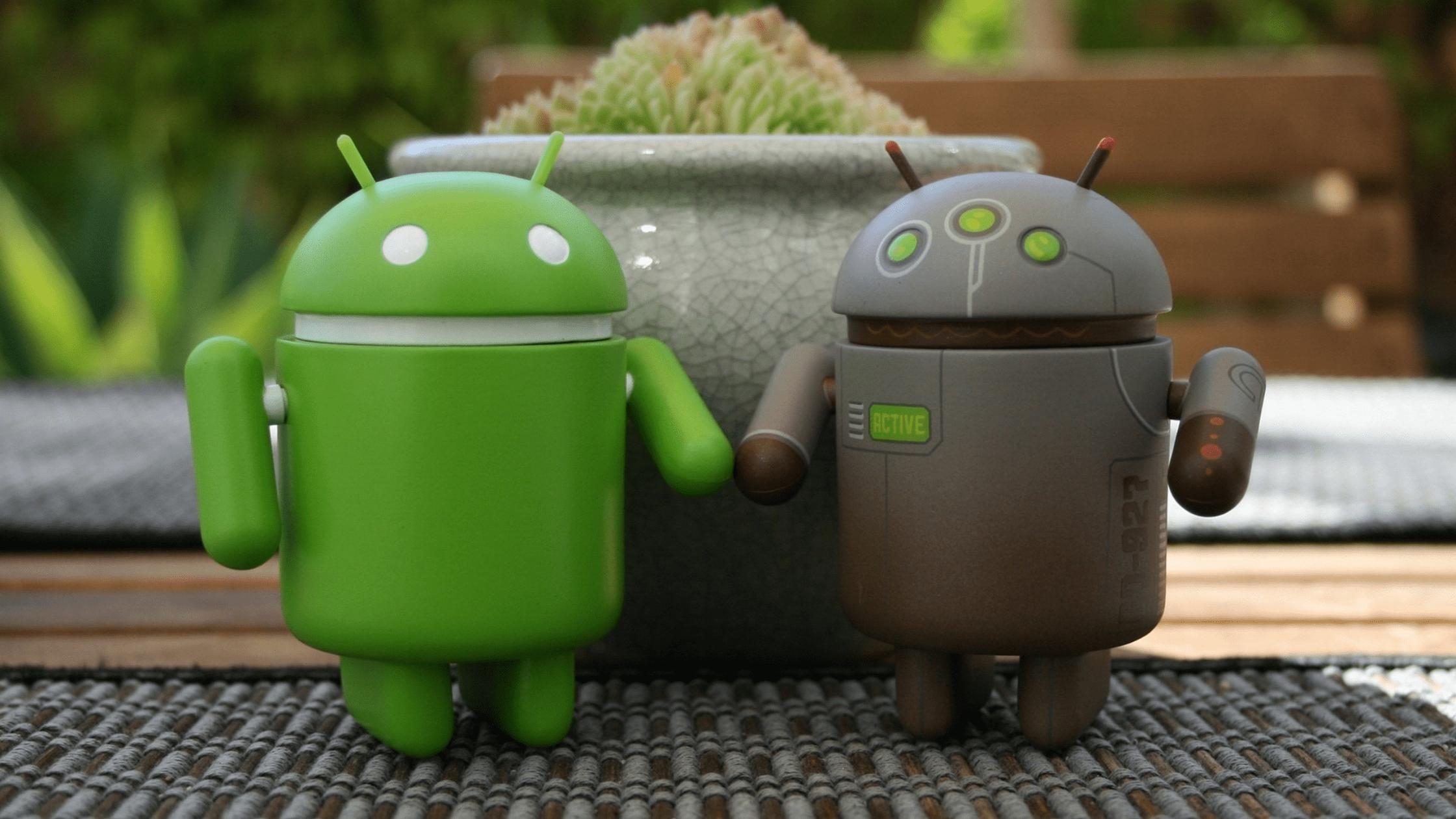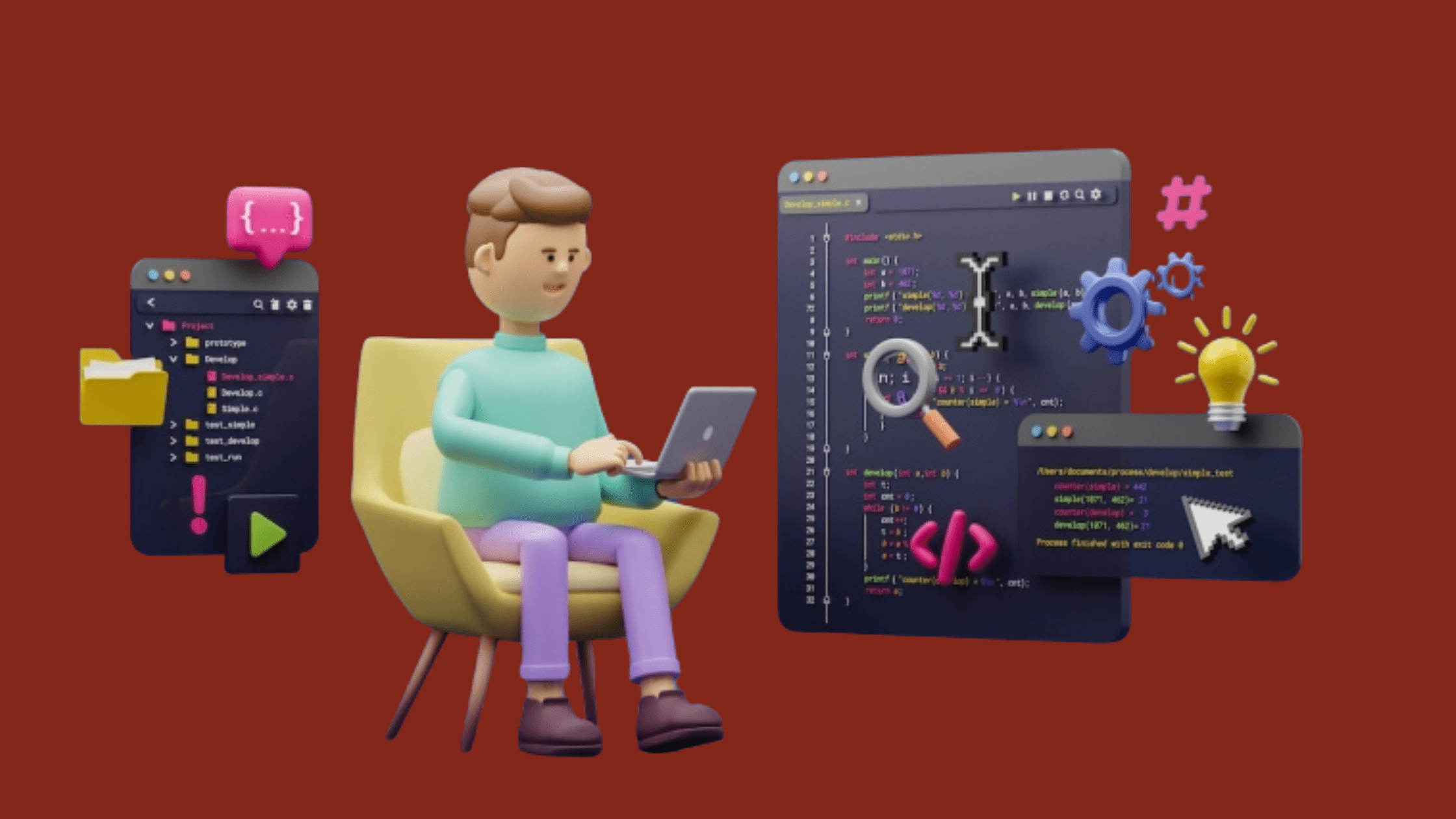We are living in a mobile-first era, with Android smartphones dominating the industry across the globe. As per a Statista report, the number of global Android users has exceeded 2 billion. Thanks to its wide range of advantages, such as a high level of customization as well as community support, this operating system continues to amass widespread adoption.
The process of Android app development starts with selecting the ideal IDE (Integrated Development Environment). Our Android developers have expertise in a host of IDEs and code editors for crafting high-quality mobile applications. By evaluating the recent market trends, I have penned down some of the best Android development IDEs, delineating their pros, cons, and use cases.
Criteria for Selecting Android IDEs
Choosing the right integrated development environment (IDE) can significantly impact your Android development workflow and productivity. With an abundance of options available, selecting the most suitable IDE requires careful consideration of various factors.
Here are five key factors to guide your decision-making process:
1) Feature Set:
A comprehensive feature set is crucial for a smooth development experience. You must explore the IDE’s capabilities, ensuring it offers essential features like code completion, syntax highlighting, debugging tools, code refactoring support, and integration with popular Android libraries and frameworks.
2) Performance and Stability:
A robust and stable IDE is essential for handling complex projects without performance issues. Evaluate the IDE’s ability to handle large codebases in order to minimize the risk of crashes or unexpected behavior.
3) User Interface:
A well-designed and user-friendly interface can significantly enhance the productivity of the Android development team. Assess the IDE’s layout, navigation, and customization options. Ensure it provides a clean and intuitive experience that facilitates easy access to project files, features, and documentation.
4) Community and Support:
It’s an undeniable fact that a vibrant and supportive community is invaluable for Android developers. Explore the IDE’s online forums, documentation, and tutorials. Check for active community members who can provide assistance, share knowledge, and contribute to the IDE’s development.
5) Cross-Platform Compatibility:
Furthermore, you should ensure the IDE is compatible with your operating system and integrates seamlessly with other development tools. Before identifying an IDE, you must verify its compatibility with eminent code versioning systems, mobile device management tools, and other necessary software components.
 Best IDEs for Android app development
Best IDEs for Android app development
If you are seeking top-notch IDEs for the purpose of Android application development, you have come to the right place:
1) Android Studio
Android Studio, developed by Google, is the official and most widely used Integrated Development Environment for Android app development. This widely utilized IDE is tailored to provide the most powerful tools and features specifically for Android Development.
Pros:
- Offers a powerful code editor and developer tools for building Android apps.
- Provides a fast and feature-rich environment for app development.
Cons:
- It can be resource-intensive, requiring a high-performance computer for smooth operation.
- A steep learning curve for beginners
2) Visual Studio
Released in 1997, Visual Studio is a comprehensive IDE from Microsoft. While it’s primarily used for developing computer programs for Windows, it also supports Android development using the Xamarin platform for cross-platform applications.
Pros:
- Allows for cross-platform mobile development.
- It’s integrated with Microsoft’s ecosystem, offering robust development for Windows users.
Cons:
- The Android development experience isn’t as holistic as Android Studio.
- Resource-intensive for some tasks
3) IntelliJ IDEA
IntelliJ IDEA is a formidable and intelligent IDE developed by JetBrains. It’s the base for Android Studio, and it’s highly acclaimed for its efficient and developer-friendly features, making it a go-to choice for many Android developers.
Pros:
- Offers robust coding assistance, debugging, and testing tools.
- Renowned for its intelligent code editor and facile integration with popular build frameworks.
Cons:
- The free version has limited features compared to the Ultimate edition.
- Just like Android Studio, it can be resource-intensive.
4) Eclipse
Eclipse is an open-source, multi-language software development environment. While it accommodates a variety of programming languages, it’s often used for Java – the backbone of Android development, making it a choice for Android developers.
Pros:
- Supports multiple programming languages.
- Known for its comprehensive features and plugin ecosystem.
Cons:
- Lacks some advanced features.
- The user interface may seem outdated to some.
5) NetBeans
NetBeans, an open-source IDE, supports development in several programming languages. While it’s not specifically designed for Android development, it provides tools and plugins that make it a viable option for Android developers.
Pros:
- Has a straightforward interface.
- It supports multiple languages and platforms.
Cons:
- It lacks advanced Android development tools compared to other IDEs.
- Can hit memory limit on certain instances.
6) Xamarin
Xamarin, now part of Microsoft’s Visual Studio, is an open-source platform for building modern and performant applications for iOS, Android, and Windows with .NET.
Pros:
- Allows for code sharing across multiple platforms, reducing development time.
- Provides a native user experience with access to specific device features.
Cons:
- The performance can be a bit slower compared to native development.
- Requires knowledge of C# and .NET frameworks, which might not be common among Android developers.
7) AIDE
AIDE, or Android IDE, is a complete integrated development environment for Android development right on Android devices.
Pros:
- Enables on-the-go development directly on Android devices.
- It supports Java, C++, and other languages and includes interactive coding lessons.
Cons:
- The interface may not be as user-friendly as desktop-based IDEs.
- Less feature-rich compared to other full-featured IDEs.
8) Cordova
Apache Cordova is an open-source mobile development framework that allows you to use standard web technologies – HTML5, CSS3, and JavaScript for cross-platform development.
Pros:
- Enables development using web technologies, making it accessible to developers with web development experience.
- Supports cross-platform development.
Cons:
- The performance and user experience might not be as good as native development tools.
- Access to native device features can also be limited.
9) Komodo
Komodo IDE is a multi-language integrated development environment that supports web and mobile app development, including Android.
Pros:
- Supports multiple languages
- Provides a unified workspace for web and mobile development.
- Includes useful features like debugging, code refactoring, and version control.
Cons:
- Not specifically designed for Android development.
- The user interface and performance might not match those of dedicated Android IDEs.
10) App Inventor
App Inventor for Android is an open-source web application developed by Google and now maintained by the Massachusetts Institute of Technology (MIT). It allows newbies to create software applications for the Android operating system.
Pros:
- Has a visual programming environment that makes it easy for beginners.
- It allows for rapid prototyping and teaching programming concepts.
Cons:
- It lacks the flexibility and power of text-based coding.
- Not ideal for complex, professional app development.
11) PhoneGap
PhoneGap is a mobile development framework that allows developers to build mobile applications using CSS, JavaScript, and HTML5. It’s a wrapper of sorts that provides access to native operating system features.
Pros:
- Supports cross-platform development.
- Leverages the power of web technologies, reducing the learning curve for web developers.
Cons:
- The performance and user experience might not match native apps.
- Access to native device features can also be limited.
12) Appcelerator Titanium
It is an open-source framework that allows the creation of mobile apps on platforms including iOS, Android, and Windows UWP from a single JavaScript codebase.
Pros:
- Titanium allows for cross-platform development with a single JavaScript codebase.
- It provides access to native features and a native user interface.
Cons:
- It has a steeper learning curve as it requires knowledge of the Titanium API.
- The community support is also less robust compared to other platforms.
13) CppDroid
CppDroid is a simple yet powerful integrated development environment for C and C++ development on Android. It provides useful tools like a code editor, compiler, debugger, and more.
Pros:
- Supports on-the-go C/C++ development right on Android devices.
- It’s great for learning, practicing, and improving C/C++ skills.
Cons:
- It’s less suited for large-scale, professional app development.
- The performance and features might not match full-fledged IDEs.
14) DroidScript
DroidScript is a simplistic yet powerful native Android application development environment that uses JavaScript as its primary language. It’s designed to make app development more accessible.
Pros:
- Simplifies the process of creating apps and provides a good starting point for beginners.
- It allows development directly on Android devices.
Cons:
- It’s not as powerful or flexible as full-featured, professional IDEs.
- It might not be suitable for complex applications.
15) Rider
Rider is a cross-platform .NET IDE developed by JetBrains. It’s a robust environment that supports a wide range of programming languages, including C#, F#, VB.NET, and more, for all kinds of development, including Android.
Pros:
- Enables robust tools for .NET development and supports a large number of languages.
- It’s integrated with ReSharper and has a user-friendly interface.
Cons:
- It’s not specifically designed for Android development.
- As a paid product, it’s more expensive than other free IDEs.
Which IDE is the best for Android Development?
When it comes to Android development, one IDE stands out from the rest – Android Studio. It’s often considered the best IDE for mobile app development, particularly for the Android OS. Developed by Google, Android Studio is a dedicated environment tailored specifically for Android development, offering an array of powerful tools and features.
As the official IDE for Android, it’s always up-to-date with the latest Android SDKs and development trends, ensuring developers have what they need to create innovative and modern applications. Android Studio is not just an IDE but a complete suite for Android development, including a code editor, emulator, profiler, and an impressive array of plugins.
Despite its comprehensive set of features, Android Studio is also often praised as a lightweight Android development IDE. It offers a clean and intuitive interface that simplifies the development process to a certain extent. Moreover, its smart code editor can significantly speed up coding by offering code completion, code analysis, and refactoring. Also, Integrated tools for building, debugging, testing, and deploying applications make the development process smooth and efficient.
In conclusion, the combination of advanced tools, dedicated Android focus, and user-friendly interface make Android Studio the best IDE for mobile app development on the Android platform. This doesn’t mean it’s the only choice, but it’s a great starting point for any aspiring Android developer.
The Verdict
In today’s day and age, there are a plethora of IDEs and code editors readily accessible to Android developers to accelerate and streamline the development process. To ensure the smooth and rapid development of an application, it is of utmost importance to pinpoint the most suitable IDE depending on the particular project.





